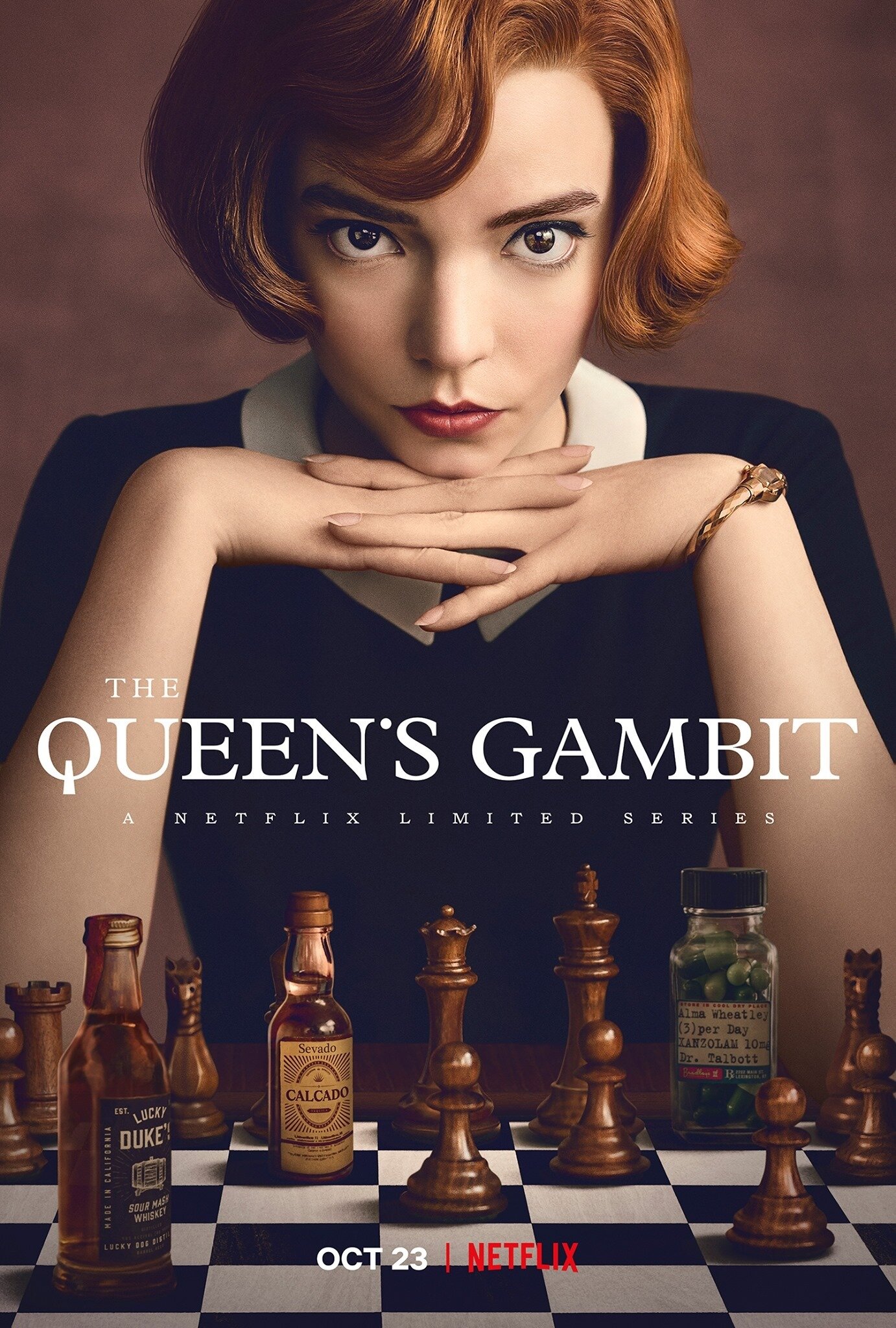Gambit puts check on patriarchy as performances perfectly capture historical challenges
Photo From The Queen's Gambit TV Series Facebook Page
Providing a gendered twist on traditional patriarchy, the queen stands alone as the most powerful weapon in the game of chess. The king, feeble and in constant need of protection, stands as a strategically impotent handicap. While this ancient game of cerebral calculations may strike some as a bit dry and boring, Netflix’s new miniseries, The Queen’s Gambit, shows it can be anything but. Based on the book by Walter Tevis, the historical drama follows Beth Harmon (Anya Taylor-Joy, The Witch), an orphaned chess prodigy, as she maneuvers the male-dominated chess community in the mid-twentieth century. Featuring incredible acting grappling with challenging issues of gender discrimination, The Queen’s Gambit beautifully captivates viewers from start to finish, leaving only the question of when season two will hit the network.
The series begins with Harmon being orphaned, forced to start a new life in an orphanage in Kentucky. She seems relatively normal from the beginning, but when she is taught chess by the orphanage janitor, Mr. Shaibel (Bill Camp, 12 Years a Slave), she proves herself to be an incredibly talented player. Harmon is eventually adopted as a teen and, after demonstrating to her adoptive mother (Marielle Heller) how beneficial the prizes from chess tournaments could be, she begins to enter competitions and gains recognition for her talent. Though being a woman proves difficult in the overwhelmingly male-competitive chess community in the 1960s, she perseveres, defeating competitors and drawing attention from all over the world. As her career progresses, Harmon faces personal challenges behind the scenes and eventually faces the only chess player she fears: Vasily Borgov (Marcin Dorociński), the chess world champion.
Gambit covers a wide range of topics in a way not seen enough in the world of television. The writers show the heartache and numbness of loss and how grief can lead some down dangerous paths. From the beginning, Harmon develops an addiction to ‘vitamins’ the orphanage forces the children to take, causing hallucinatory side effects. Due to this, addiction and alcoholism are very present throughout the show, as well as the struggle of trying to get and stay sober. Though these issues are prominent throughout the series, they can be handled unrealistically at times. Though the portrayal of struggles with addiction, withdrawal, and relapsing are realistic, the show also makes recovery seem far easier than it truly is.
Photo From The Queen's Gambit TV Series Facebook Page
Since the show takes place in the 1950s and 1960s, Harmon faces sexism within the chess community as well as in the patriarchal world around her. Immediately doubted by her male competitors and seen as inferior, she perseveres and proves herself to be talented and worthy. When her career takes off, her sex is the main topic of every article about her, but she refuses to tolerate it, questioning why it is important when the main focus should be on her talent. Though Harmon isn’t the greatest role model at times, her dedication and talent makes her an incredibly strong female character for young girls to look up to.
Aside from the important topics in the series, the actors are incredible and practically born for their roles. Taylor-Joy has been in several historical dramas in her career, such as Peaky Blinders and The Miniaturist, and her experience seems to make her the perfect Beth Harmon. She effortlessly portrays the emotions of her character and seems to have truly immersed herself in the role. Some other exceptional actors, and possibly familiar faces, include Harry Melling, who is best known for his work as Dudley in the Harry Potter franchise, and Thomas Brodie-Sangster, known for his role as Newt in the Maze Runner trilogy. Every actor embodies their role perfectly and portrays a believable character, allowing the audience to feel connected to them and immersed in the story.
From the acting to the portrayals of addiction, grief, and sexism, The Queen’s Gambit is an enthralling series that will keep viewers hooked. The series shows both the beauty of chess as a game and as a metaphor for the human experience.
By Emery Oliphant-Buchta and Caitlynn Gehl
Oshkosh West Index Volume 117 Issue 3
December 11, 2020

